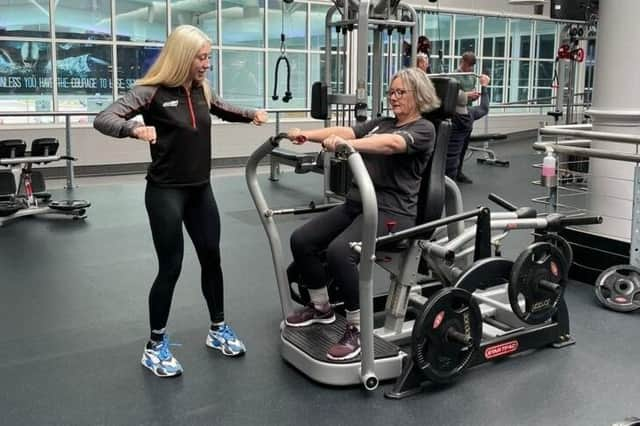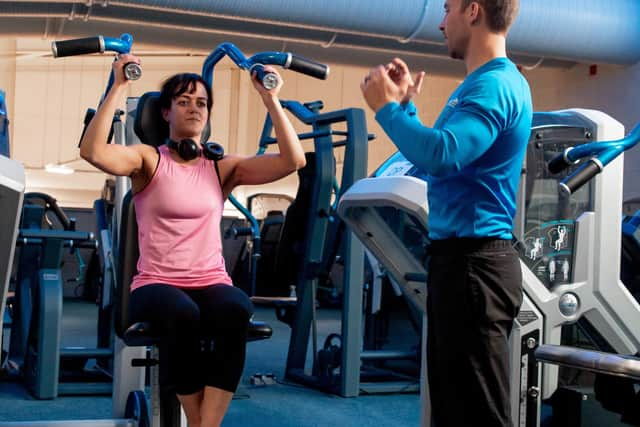Strength training for women – Lancashire classes unveiled


With oestrogen as their main anabolic hormone, women, on average, can expect less muscle growth than men for the same amount of work. This is especially true in the upper body. Oestrogen levels decrease with age, so women can also expect a faster decline in joint and muscular health.
Women also have a lower bone mineral mass on average and are more susceptible to degenerative arthrosis (breakdown of the joints).
However, muscle to nerve response times are just as fast as for males – and this is responsible for over 30% of strength gain.


When you take these facts together, there is a clear argument for women to set aside time for regular, high quality strength training.
Making a difference
Strength training with 3-1-5 can help women improve joint health and bone mineralisation, as well as develop a strong, lean body. Women should weight their training regime slightly toward upper body workouts. Specifically, they should work the core, shoulder and the back.
Trainees can begin with two workouts every 10 days. Once the trainee is content with her strength development, she can then cut back to one workout a week. If part of your goal is fat loss, the number of workouts should be maintained at two to three per week.
Fitness facts
Body weight can be changed by dieting, but not your strength. Without exercise, dieting alone won’t deliver the results for all round fitness and strength improvement.
According to https://www.osteoporosis.foundation/ 25 per cent of post-menopausal women will suffer a serious hip injury, but strength training can build better muscle mass to help prevent injuries.
Increasing muscle mass will automatically increase fat metabolism, even when the muscle is at rest. If training intensity is reduced too much, or the resting period becomes too short, muscle growth will also be reduced.
Integrate these techniques into your lifestyle and reap the fat loss benefits in the results driven campaigns, with classes and guidance.
KJ Blenkharn is the Performance Manager at 3-1-5 in Lancaster.
Find out more at https://www.3-1-5.co.uk/power-strength-training-women/
For further information contact: [email protected]